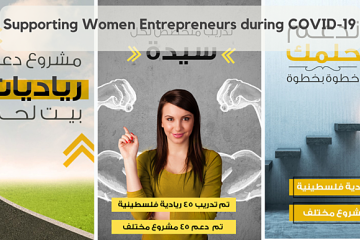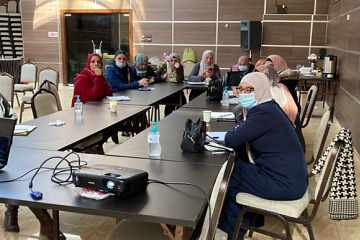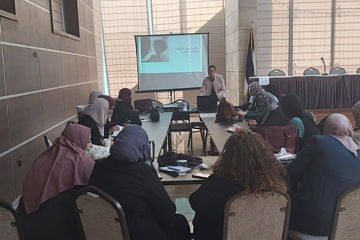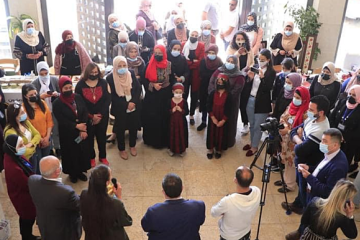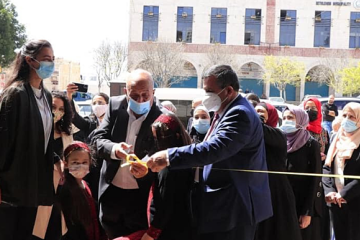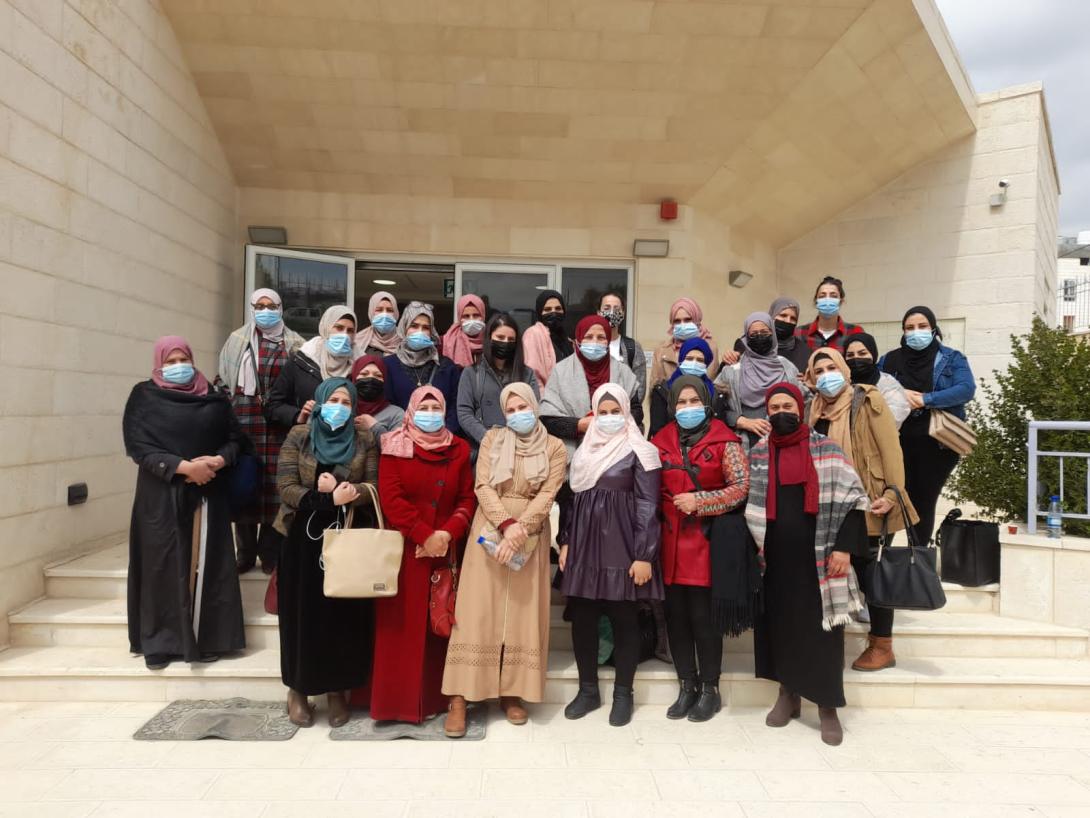
"Supporting Women Entrepreneurs during COVID-19" is a project focuses on three inter-related intermediate outcomes: i) reduced barriers to market faced by women entrepreneurs; ii) enhanced opportunities for women entrepreneurs to successfully establish and/or grow sustainable businesses; and, iii) enhanced opportunities for female entrepreneurs, particularly female youth, to support the adoption of productive processing value chains. To achieve these outcomes, the project will address several key challenges impacting women’s entrepreneurship in the West Bank areas with a special focus on Bethlehem areas.
The project contributed to the development of women led economy in Bethlehem governorate and to creating the business-enabling environment for women entrepreneurs in the area. Through the project’s interventions such as building the capacity of the targeted women and the support on the management and technical level, the trained women entrepreneurs now have better access the market and therefore, grow their businesses, employ more people, and generate sustainable and better incomes for their employees, themselves, and their families.
By the end of the project and with special focus on the needs of women entrepreneurs, the business-enabling environment for women entrepreneurs in Bethlehem and the West Bank will have improved through assisting women entrepreneurs to improve their businesses and have better market access and through creating least 2 Outlet Shops for promoting and selling of women entrepreneur’s products established or up-graded (if already existent prior to project), one real and one virtual outlet.
The project seeks to achieve this by adopting a gender transformative approach aimed at recognizing, formalizing, and amplifying women’s existing roles in key value chains whilst promoting women’s increased decision-making and control over income, assets, and productive recourses. The project focused on value chains, where significant exists to empower women, including female youth, to move beyond their essential but largely unrecognized roles, ultimately contributing to their increased agency in both economic and social sphere.
This project contributes directly towards the achievement of the SDGs, especially SDG1: No poverty, SDG 5: Gender Equality SGD 8: Decent work and economic growth, and SD10: Reduces Inequalities. Ibtikar supported women led MSME's growth that will improve access to market and income generation opportunities.
